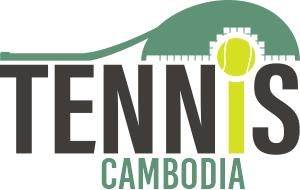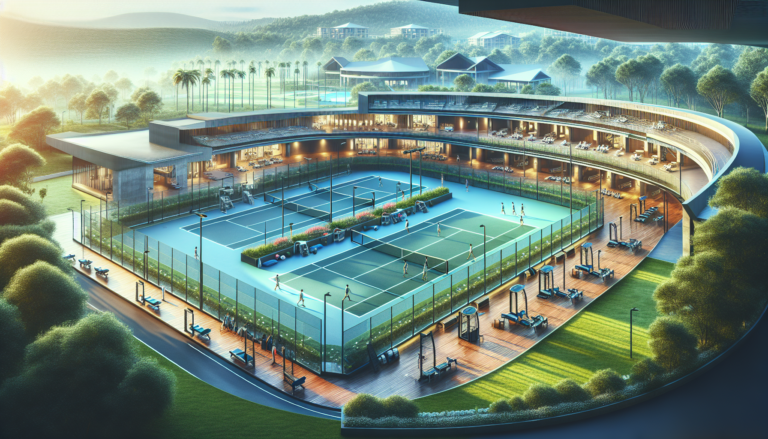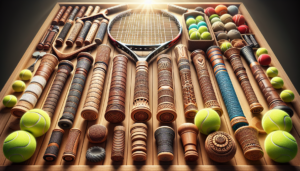Introduction to Tennis Academies
Tennis is a sport that requires a combination of technical skill, physical fitness, and mental toughness. For aspiring players looking to take their game to the next level, enrolling in a tennis academy can provide the intensive training and professional coaching needed to excel. Tennis academies offer immersive programs designed to develop well-rounded athletes, focusing on everything from stroke technique and strategy to strength conditioning and character building.
What is a Tennis Academy?
A tennis academy is a specialized training facility that provides comprehensive instruction and resources for serious tennis players. These institutions employ experienced coaches who work closely with students to identify strengths, correct weaknesses, and optimize performance. Tennis academies typically offer a structured environment with a mix of on-court drills, match play, fitness training, and classroom sessions.
The primary goal of a tennis academy is to help players reach their full potential, whether that means earning a college scholarship, pursuing a professional career, or simply mastering the game at a high level. Many academies cater to junior players, providing a supportive setting for balancing intensive training with academics.
Importance of Professional Coaching
One of the key advantages of attending a tennis academy is access to expert coaching. Professional coaches have the knowledge and experience to analyze a player’s technique, identify areas for improvement, and implement effective training strategies. They can provide personalized feedback and guidance, helping players refine their strokes, develop tactical awareness, and build mental resilience.
In addition to technical instruction, professional coaches also serve as mentors and role models. They can offer valuable insights on the mental aspects of the game, such as managing pressure, maintaining focus, and cultivating a positive attitude. By working closely with experienced coaches, players can develop the skills and mindset needed to excel both on and off the court.
Key Factors in Choosing a Tennis Academy
With numerous tennis academies available worldwide, it’s important to consider several key factors when selecting the right program. Location, coaching quality, facilities, and educational opportunities are all crucial elements to evaluate.
Location and Accessibility
The location of a tennis academy can have a significant impact on a player’s experience. Some students may prefer an academy close to home, allowing for easy visits from family and friends. Others may be drawn to academies in tennis hotspots like Florida or Spain, which offer year-round training in favorable climates.
Accessibility is another important consideration. Players should evaluate the ease of traveling to and from the academy, as well as the availability of nearby amenities like housing, dining, and medical facilities. Some academies may offer on-site accommodations, while others may assist with arranging local homestays or apartment rentals.
Quality of Coaching
The caliber of coaching is perhaps the most critical factor in choosing a tennis academy. Look for programs with experienced, certified coaches who have a proven track record of developing successful players. Many top academies employ former professional players or coaches who have worked with elite athletes.
Consider the coach-to-student ratio and the level of individualized attention provided. Some academies may offer private lessons in addition to group training sessions. It’s also important to evaluate the coaching philosophy and methodology to ensure it aligns with your goals and learning style.
Facilities and Infrastructure
The quality and variety of tennis facilities can greatly impact a player’s development. Top academies invest in state-of-the-art courts, training equipment, and fitness centers to provide a comprehensive training experience. Look for programs with a range of court surfaces, including hard courts, clay courts, and indoor options for year-round training.
In addition to tennis-specific facilities, consider the overall infrastructure of the academy. Are there ample opportunities for cross-training, such as swimming pools, running trails, or yoga studios? Does the academy offer on-site physiotherapy or sports medicine services to support injury prevention and recovery?
Educational Opportunities
For many young players, balancing tennis training with academics is a top priority. Some tennis academies partner with local schools or offer on-site educational programs to help students maintain their studies while pursuing their athletic goals. Look for academies that provide flexible scheduling, tutoring services, or online learning options to accommodate the demands of intensive training.
If you’re aiming for a college tennis career, consider whether the academy has a track record of placing students at top universities. Some programs may offer guidance on the college recruiting process or have established relationships with college coaches.
Top Tennis Academies Worldwide
| Academy | Location | Notable Features |
|---|---|---|
| IMG Academy | Bradenton, Florida, USA | 50+ courts, elite coaches, rigorous academics |
| Mouratoglou Academy | Nice, France | 34 courts, personalized training, modern facilities |
| Rafa Nadal Academy | Mallorca, Spain | 26 courts, technical & tactical focus, sports science |
| Evert Tennis Academy | Boca Raton, Florida, USA | 23 courts, college prep, sports psychology |
| Sanchez-Casal Academy | Naples, Florida, USA | 37 courts, Spanish training methods, professional coaching |
While there are many exceptional tennis academies around the world, here are a few that consistently produce top-level players:
Bollitieri Tennis Academy
Founded by legendary coach Nick Bollitieri, this Florida-based academy has trained numerous Grand Slam champions and world No. 1 players. With over 50 courts and a comprehensive training approach, IMG Academy is known for its intensive program that combines tennis, academics, and athletic development.
Mouratoglou Tennis Academy
Located in France, the Mouratoglou Tennis Academy is led by Patrick Mouratoglou, coach of Serena Williams. The academy features state-of-the-art facilities, including 34 courts and high-tech training equipment. With a focus on personalized coaching and a holistic approach to player development, Mouratoglou has become a top destination for aspiring professionals.
Rafa Nadal Tennis Academy
Launched by 20-time Grand Slam champion Rafael Nadal, this academy in Mallorca, Spain, offers a unique training philosophy based on Nadal’s own experiences. With 26 courts and a focus on technical skills and tactical development, the academy aims to nurture well-rounded athletes. The program also incorporates sports science and medical support to optimize player health and performance.
Evert Tennis Academy
Co-founded by former world No. 1 Chris Evert, this Florida academy offers a blend of elite training and academics. With 23 courts and a experienced coaching staff, Evert Tennis Academy focuses on helping players reach their full potential. The program places a strong emphasis on mental conditioning and preparing students for college tennis careers.
Saviano Tennis Academy
Under the direction of renowned coach Nick Saviano, this academy offers a boutique training experience with a low coach-to-student ratio. Located in Florida, Saviano Tennis Academy provides a supportive environment that combines technical instruction, strategic development, and match play. The academy also assists with college placement and professional career guidance.
Training Programs and Philosophies
While each tennis academy has its own unique approach, most programs share a common goal of developing well-rounded players who excel in all aspects of the game. Training typically focuses on technical skills, tactical understanding, physical conditioning, and mental toughness.
Technical and Strategic Development
A primary focus of tennis academy training is refining stroke technique and shot selection. Coaches work closely with players to analyze and optimize every aspect of their game, from serve and return to groundstrokes and volleys. Through a combination of drills, video analysis, and match play, students learn to execute shots with precision, power, and consistency.
In addition to technical skills, academy coaches also emphasize strategic understanding. Players learn to construct points, exploit opponents’ weaknesses, and adapt to different playing styles and conditions. Tactical sessions may include studying video footage, analyzing game patterns, and developing personalized game plans.
Physical and Mental Conditioning
Tennis is a physically demanding sport that requires strength, speed, agility, and endurance. Top academies incorporate comprehensive fitness training to help players build the physical attributes needed to excel on court. This may include weightlifting, plyometrics, cardio workouts, and sport-specific exercises designed to improve footwork and balance.
Equally important is mental conditioning. Tennis is often described as a “game of inches,” where the margin between winning and losing can come down to a few key points. Academy coaches work with players to develop mental toughness, resilience, and the ability to perform under pressure. This may involve sports psychology sessions, visualization techniques, and competitive goal setting.
Life Skills and Character Building
Beyond the tennis court, many academies also prioritize personal development and life skills training. Students may participate in workshops on topics like time management, effective communication, and leadership. The goal is to help players develop the self-discipline, work ethic, and character traits needed to succeed both in tennis and in life.
Some academies also encourage community involvement and volunteer work, helping students develop a sense of social responsibility and perspective. By cultivating well-rounded individuals, tennis academies aim to prepare players not just for athletic success, but for meaningful careers and contributions beyond the game.
Tuition and Costs
Attending a top tennis academy is a significant investment in a player’s future, but that investment comes at a cost. Tuition can vary widely depending on the academy, location, and program duration.
Cost of Training at Top Academies
Annual tuition at elite tennis academies can range from $30,000 to $80,000 or more. This typically includes training, coaching, and facility access, but may or may not include housing, meals, and academic courses. Some academies offer both full-time and part-time programs, as well as summer camps or short-term intensive training options.
In addition to tuition, players and families should budget for travel costs, tournament fees, equipment expenses, and health insurance. Some academies may offer meal plans, transportation services, or other amenities to help manage these additional expenses.
Scholarships and Financial Aid
For families concerned about the cost of tennis academy training, there may be financial aid or scholarship opportunities available. Some academies offer merit-based or need-based grants to help offset tuition expenses. These may be awarded based on factors like tennis ability, academic achievement, or financial need.
In some cases, players may be able to secure individual sponsorships or fundraise to help cover training costs. It’s important to research all available options and discuss financial concerns with academy staff to explore potential solutions.
Conclusion
Choosing the Right Academy for You
Attending a tennis academy can be a transformative experience, offering immersive training, expert coaching, and the opportunity to pursue your passion at the highest level. When considering tennis academies, take the time to research programs that align with your goals, learning style, and personal preferences.
Visit academy websites, read student testimonials, and reach out to coaches or admissions staff with any questions. If possible, schedule a campus tour or attend an open house event to get a firsthand look at the facilities, meet the coaching staff, and experience the academy culture.
Remember, choosing a tennis academy is a highly individual decision. What works for one player may not be the best fit for another. Trust your instincts, discuss your options with trusted advisors, and select the program that feels right for you.
Future of Tennis Training
As the game of tennis continues to evolve, so too do the approaches to training and player development. Tennis academies are at the forefront of this evolution, constantly refining their methods to meet the demands of the modern game.
In recent years, there has been a growing emphasis on data-driven training, with academies leveraging advanced analytics and video analysis tools to track player progress and optimize performance. Many programs have also expanded their focus on sports science, incorporating cutting-edge research on nutrition, biomechanics, and recovery to support player health and longevity.
As the tennis landscape becomes increasingly global and competitive, academy graduates will need to be prepared for the challenges of the professional tour. This may involve a greater focus on international travel, cultural adaptability, and language skills, as well as the mental resilience to cope with the pressures of high-stakes competition.
Despite these challenges, the future of tennis training looks bright. With the guidance of experienced coaches, the support of dedicated staff, and the camaraderie of like-minded peers, academy students have the opportunity to pursue their dreams and make their mark on the game. Whether you aspire to be a Grand Slam champion, a college star, or simply a lifelong lover of tennis, a tennis academy education can provide the foundation for a rewarding and fulfilling journey in the sport.






